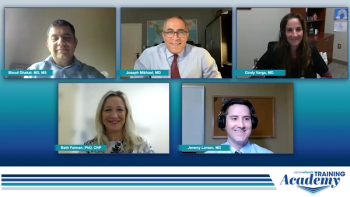
The panel closes their discussion by highlighting crucial takeaways about the use of bispecific antibodies in the treatment of multiple myeloma.

Your AI-Trained Oncology Knowledge Connection!


The panel closes their discussion by highlighting crucial takeaways about the use of bispecific antibodies in the treatment of multiple myeloma.

Doctors discuss the potential of bispecific therapies being used in earlier lines of treatment for multiple myeloma, and the need for understanding and reducing toxicities as much as possible.

Experts explain the strategies for optimal selection between different BCMA-targeting and non-BCMA-targeting bispecifics for the treatment of relapsed/refractory multiple myeloma.

Cindy Varga, MD, details her experience with sequencing BCMA-targeting agents for patients with relapsed/refractory multiple myeloma.

Jeremy Larsen, MD, discusses the management of infections, neurotoxicity, and other side effects associated with bispecifics in patients with R/R MM, including the need for prophylactic antimicrobials and monitoring of immunoglobulin levels.

Expert panelists in multiple myeloma share their experiences with implementing bispecifics and transition of care in the community setting for patients with R/R MM.

The panel discusses the approach to step-up and treatment dosing for bispecifics in their respective health care systems.

Expert hematologist-oncologists discuss how they incorporate teclistamab in their clinical practice as well as variations in access to bispecifics and CAR T-cell therapy.

Jeremy Larsen, MD, discusses data from a phase 1/2 study of cevostamab and other emerging bispecifics being evaluated in patients with relapsed/refractory multiple myeloma.

Dr Jeremy Larsen reviews data from the MonumenTAL-1 study investigating the CD3- and GPRC5D-targeting bispecific antibody talquetamab in relapsed/refractory multiple myeloma.

Dr Cindy Varga discusses recent data on the FDA-approved agent teclistamab, a bispecific antibody for patients with relapsed/refractory multiple myeloma.

Binod Dhakal, MD, MS, discusses the management of relapsed multiple myeloma and the various treatment options available.
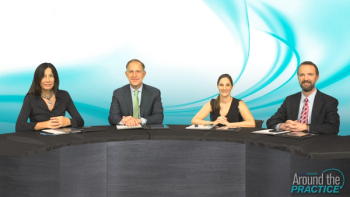
The panel shares some unmet needs in the multiple myeloma treatment landscape and exciting developments on the horizon.
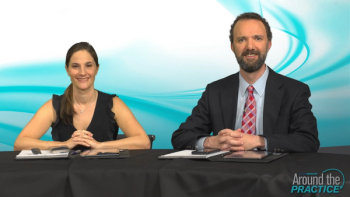
Dr Tuchman highlights exciting bispecific agents in investigation for the treatment of relapsed/refractory multiple myeloma.
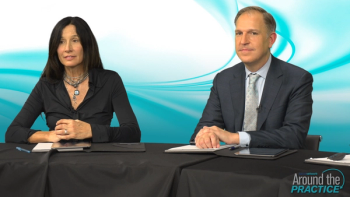
Peter Voorhees, MD, starts a conversation on the best treatment options for patients with multiple myeloma after relapse.

Sascha Tuchman, MD, discusses how frail patients with multiple myeloma are defined in his clinical practice, and what assessment models he utilizes.

Dr Sascha Tuchman explains how he measures an adequate or successful frontline treatment response in patients with transplant-ineligible NDMM.

Dr Christina Gasparetto compares the results of the MAIA and SWOG0777 trials and discusses how the data has been practice-changing.

Dr Varga and Dr Tuchman explain the factors for consideration when choosing an initial treatment regimen for patients with transplant-ineligible NDMM.

Drs Tuchman and Gasparetto present two profiles of patients with transplant-ineligible NDMM.

Cristina Gasparetto, MD, details how to assess treatment response and duration of treatment for transplant-eligible NDMM.

Dr Cindy Varga explains the design and results of the MASTER study presented at ASH [American Society of Hematology Annual Meeting] 2021.

Cindy Varga, MD, presents a profile of a 59-year-old patient diagnosed with transplant-eligible multiple myeloma.

The panel discusses triplet and quadruplet regimen options for transplant-eligible NDMM, and the clinical implications of the DETERMINATION study.
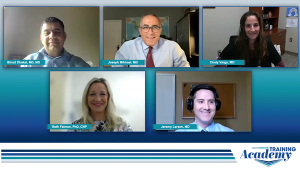
Published: June 14th 2023 | Updated:

Published: June 14th 2023 | Updated:

Published: June 21st 2023 | Updated:

Published: June 21st 2023 | Updated: